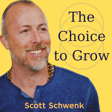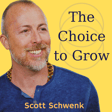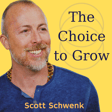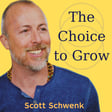
Rewriting the Nervous System: Jamie Clements on What Breathwork Really Offers
In this episode of The Choice to Grow, Scott sits down with breathwork practitioner and mental health advocate Jamie Clements. What begins as a conversation about the power of the breath unfolds into a deeper reflection on stillness, masculine identity, and what it takes to come back into the body. Jamie shares his own journey—from struggling with anxiety and dissociation to finding his voice through the breath—and the quiet revolution that happens when we stop running from our discomfort.
If you’ve ever felt like you’re “doing all the work” but still not feeling safe inside your own life, this episode is for you.
Jamie Clements - Consciousness Guide, Breathworker, Thought Leader
Jamie Clements is the founder of The Breath Space and host of the Human Nature Podcast, recognised as a leading voice in the wellbeing space and an expert breathwork facilitator. His work explores the intersection of breath, consciousness, and human potential, drawing from Zen philosophy, non-dual approaches, modern neuroscience, and psychology to guide people towards deeper awareness and transformation.
Jamie has worked with top entrepreneurs, politicians, athletes, and global brands, sharing the life-changing potential of breathwork and altered states of consciousness. His approach is rooted in both scientific research and ancient wisdom, offering a unique blend of practical tools and profound insight.
After experiencing first-hand the profound impact of breathwork, Jamie is deeply passionate about helping others unlock its power. He believes that the breath is the most universal and accessible tool for shifting the mind, regulating the nervous system, and cultivating a healthier, more connected way of living.
Scott Schwenk - Master Coach, Spiritual Teacher, Leadership Consultant
Scott Schwenk’s teachings, courses and private mentoring guide leaders, seekers and creatives to explore their deepest selves in service of thriving on all levels of being, both individually and relationally.
Host and creator of the podcast The Choice To Grow, Scott is known for his hugely popular courses and workshops with OneCommune.com, Younity.com, Wanderlust Festivals, and Unplug Meditation, Scott has been catalyzing the inner evolution of others for decades: helping them to grow, transform obstacles into opportunities, and find Love within.
Apprenticeships in leadership development, meditation and philosophy training, shadow work/shadow resolution and spiritual awakening are all part of Scott’s development into the thought-leader that he is today. He continues to refine his offerings studying and practicing with key innovators at the leading edges of human development.
Scott’s teachings support the entire person to not only progressively recognize, stabilize and embody our inextricable oneness with the source of creation (Waking Up), but also to resolve the wounds of the past (Cleaning Up), continually expand our capacities for wider and more inclusive perspectives on any moment (Growing Up) and creatively and joyfully participate and collaborate with all of life as a loving thriving human being (Showing Up).
You can receive a free guided meditation and explore Scott’s courses, workshops, retreats, training and master coaching at https://scottschwenk.com and can find him on Instagram @thescottschwenk.



